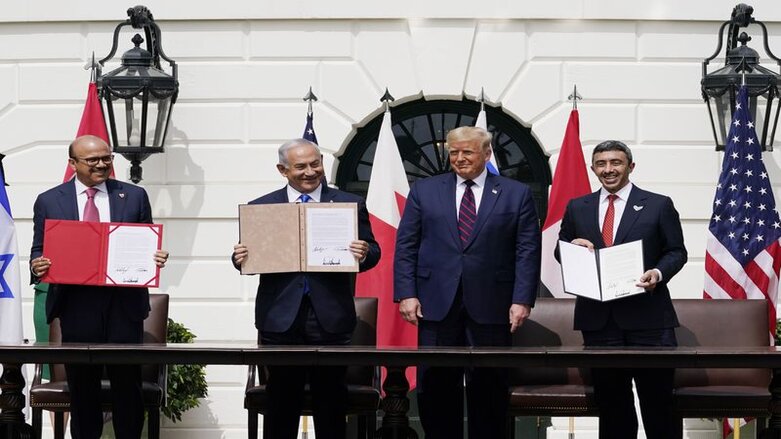Abraham Accords help revive Jewish life in Arab Gulf states

WASHINGTON DC (Kurdistan24) – The Association of Gulf Jewish Communities (AGJC) is launching a fundraising campaign on Sunday to restore Bahrain’s Jewish cemetery, the Jewish Telegraph Agency has reported.
The announcement reflects a generally unrecognized consequence of the Abraham Accords—a series of normalization agreements between Israel and several Arab states, including Bahrain, the United Arab Emirates (UAE), Morocco, and Sudan.
The Abraham Accords represented a novel approach to Arab-Israeli peacemaking. They were conceived of, and concluded, in the last two years of the Trump administration—when Mike Pompeo was Secretary of State and David Schenker was Assistant Secretary of State for Near Eastern Affairs.
Until the Abraham Accords, the general US posture was to have the Israelis and Arabs make concessions to each other. This was, for example, the US approach during the administrations of George H.W. Bush and Bill Clinton. The results, however, were very limited.
Thus, the Trump administration, arguably, accomplished much more in its last two years by way of Arab-Israeli peacemaking than the dozen years of the first Bush and Clinton combined.
Read More: Israel signs accords with UAE, Bahrain
The AGJC was founded in early 2021, some six months after the first of the accords was concluded. Jewish communities in the six countries that constitute the Gulf Cooperation Council (GCC) have since seen a notable revival, as the AGJC explains on its website.
“Last February, the Jewish communities of Bahrain, Kuwait, Oman, Qatar, Saudi Arabia and the UAE came together to form the Association of Gulf Jewish Communities with the aim of sharing resources,” Ebrahim Nonoo, President of the AGJC, stated.
Bahrain once had the largest, most active Jewish community among the countries that now constitute the GCC. But even in Bahrain, its numbers had shrunk dramatically. In 2020, only about 50 Jews were living there, down from some 1,000 a century earlier.
“After the United Arab Emirates signed the Abraham Accords with Israel and Bahrain normalized relations with Israel,” however, “leaders of the Gulf Jewish communities have worked to revive Jewish life in the region, particularly in Bahrain, which hosts the only functioning Jewish cemetery, as well as a synagogue,” the JTA explained.
The AGJC’s improvements to the cemetery in Bahrain will include planting trees. That begins on Sunday when Jews mark the holiday of Tu Bishvat, which falls on the halfway point between fall and spring in the Jewish calendar.
Traditionally, Tu Bishvat celebrates trees—particularly fruit trees. Their importance in the ancient Middle East can easily be understood. In modern practice, Tu Bishvat has become a day to promote environmental stewardship.
“We are planting trees in the Jewish cemetery of Bahrain which is akin to bringing life back to those that have lived in the beautiful community in Bahrain for centuries and made their resting place in Bahrain for eternity,” Rabbi Eli Abadie, who, in 2020 joined the Jewish Council of the Emirates as its senior and resident rabbi, told the JTA.
Bahrain’s Jewish community first emerged in the late 1800s, when a group of Iraqi Jews and some Jews from Iran emigrated there. At the time, Bahrain was a British protectorate.
In fact, all the GCC countries, save Saudi Arabia and Oman, were British protectorates. The British sought to contain the Saudi creed—Wahhabism—in the desert interior of Arabia because once the Wahhabis reached the coast, they became pirates, threatening Britain’s shipping to India—the jewel in its imperial crown.
That is why Kuwait, Bahrain, Qatar, and the UAE exist today. Only Oman did not need Britain to ensure its survival, but, over time, it also developed close ties with the British. The original 19th century treaties lasted for another century, providing stability in the strategic oil-rich region as long as the British remained.
